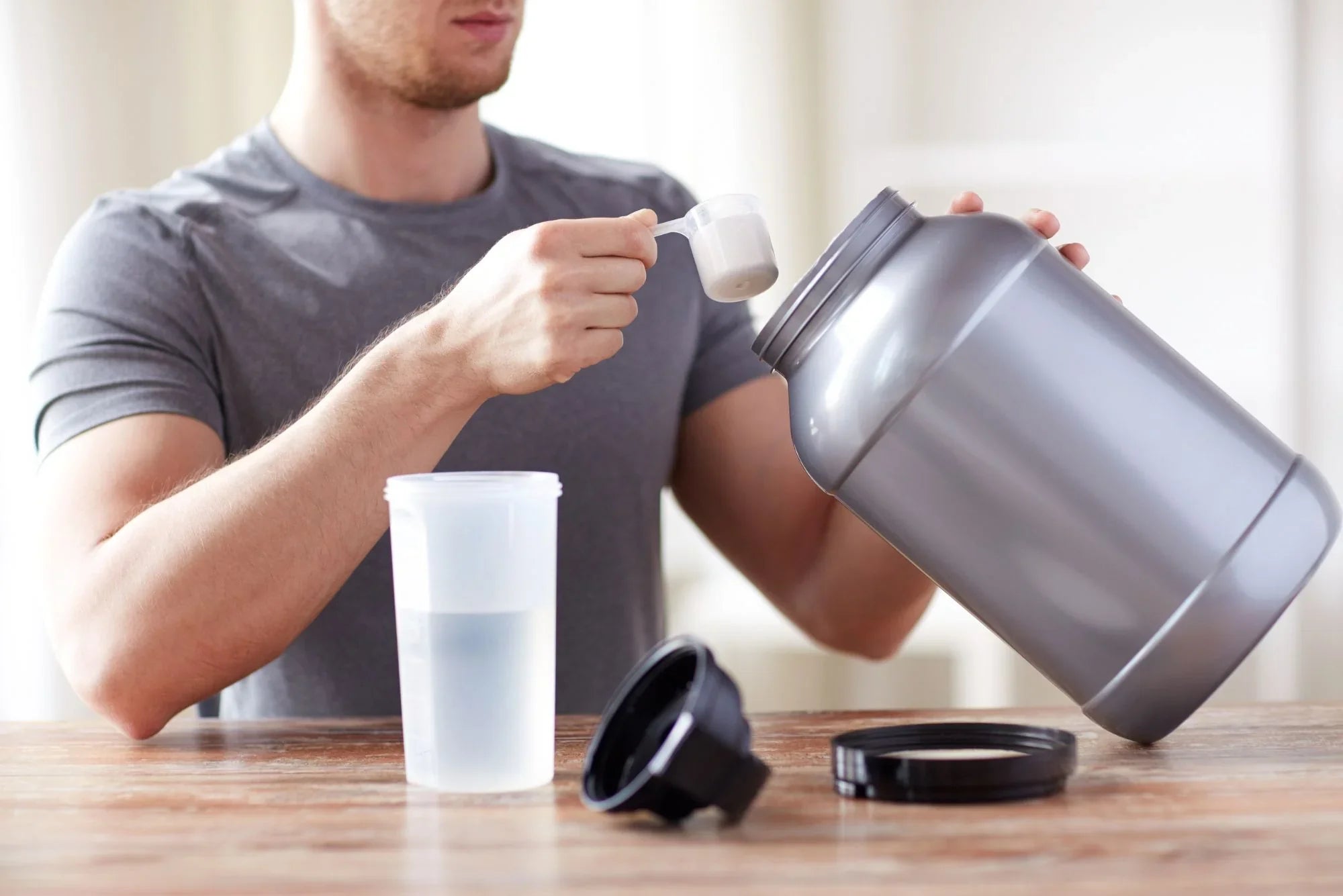Most people are familiar with creatine as “the body builder’s supplement,” used to maximize muscle growth and energy output during intense strength and cardio workouts. Creatine also happens to be one of the most researched supplements on the market, with a long history of safety and beneficial use.
But what about taking creatine outside of working out? Are there other uses and benefits for this well-known supplement, even if you’re not the type of person who hits the gym six days a week?
The short answer is yes! It turns out creatine is quite versatile, supporting cognitive function, metabolism, boosting mood, and more. Let’s explore the uses of creatine both inside and outside of the gym.
What is Creatine?
Creatine is a compound made of three amino acids — glycine, arginine, and methionine — that stimulates energy production in the body, primarily in the muscles but also in the brain. Because of its quick energy production abilities, creatine supplementation is known to increase explosiveness and power during exercise, maximizing your workouts to build muscle.
As a supplement, creatine has one of the longest track records of any supplement in terms of safety and efficacy. Any excess unused by your cells is efficiently excreted out in urine. However, it’s important to stay well hydrated when taking creatine, and taking creatine alongside carbohydrates and electrolytes can improve absorption.
Interestingly, new research suggests that creatine may operate similar to a neurotransmitter in the brain, boosting mood and lowering symptoms of depression. We need more well-designed studies to confirm this role, but it is an exciting development in the ongoing search for effective mental health solutions with little to no side effects.
Why is Creatine So Popular for Working Out?
Creatine helps the body recycle ATP (adenosine triphosphate), the energy molecule, to fuel muscle cells. So when you consistently feed your muscles more creatine (and eventually reach full creatine saturation), you’re able to perform better in workouts and sports, and you’ll likely see more muscle definition as a result.
Creatine also helps muscle cells absorb and hold more water, making your muscles appear fuller and stronger. This is why creatine is so popular among bodybuilders and everyday gym-goers alike.
Of course, creatine isn’t a substitute for regular exercise or adequate protein intake to build muscle mass. But it can support both of these things and help your body maximize performance in the gym as well as in everyday activities.
Additional Benefits of Creatine
So what are some other benefits of creatine without working out? It might surprise you to learn that there are quite a few, and even those not looking to build serious muscle can benefit from supplementing creatine.
Cognitive Support & Neuroprotection
Creatine is well known to support brain health and even protect the brain from neurological damage, supporting cognitive processing and recovery from acute stressors such as sleep deprivation. It also seems to be effective for reducing symptoms of mild traumatic brain injury due to concussion or physical trauma.
Creatine may even support recovery from degenerative conditions like multiple sclerosis (MS) that affect the central nervous system. But perhaps more practically, it can help us get through a full day of thinking, questioning, and decision-making by stimulating more energy production in the brain.
Healthy Aging
Creatine can support healthy aging in the brain and muscles, helping to ward off cognitive decline and muscle wasting, as well as bone loss in older adults. These are some of the most prominent concerns around aging-related diseases and health complications, and creatine may offer a simple solution.
Women’s Health
Women naturally have 70-80% lower creatine stores than men, yet research shows that creatine may be especially important during menstruation, pre- and post-partum, pregnancy, and menopause to support hormone balance and energy production.
Women may also particularly benefit from creatine due to increased rates of sleep deprivation and depression compared to men. If you’re a woman looking to try creatine for your health, don’t be discouraged by its reputation for weightlifters and muscle heads. Creatine can be just as valuable, if not more so, for women as men.
Chronic Illness, Fatigue, and Post Viral Syndrome
Another potential use of creatine is to increase cellular energy for those with chronic illness and persisting fatigue, including long COVID sufferers. Long-term, consistent supplementation (3-6 months) seems to be the best course of action for these individuals to see improvements in fatigue, cognitive function, headaches, body aches, and other associated symptoms. Again, creatine is so well-tolerated by nearly everyone that it doesn’t hurt to try if you’re looking for alternative solutions for chronic fatigue or post-viral syndrome.

